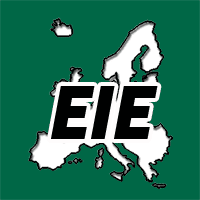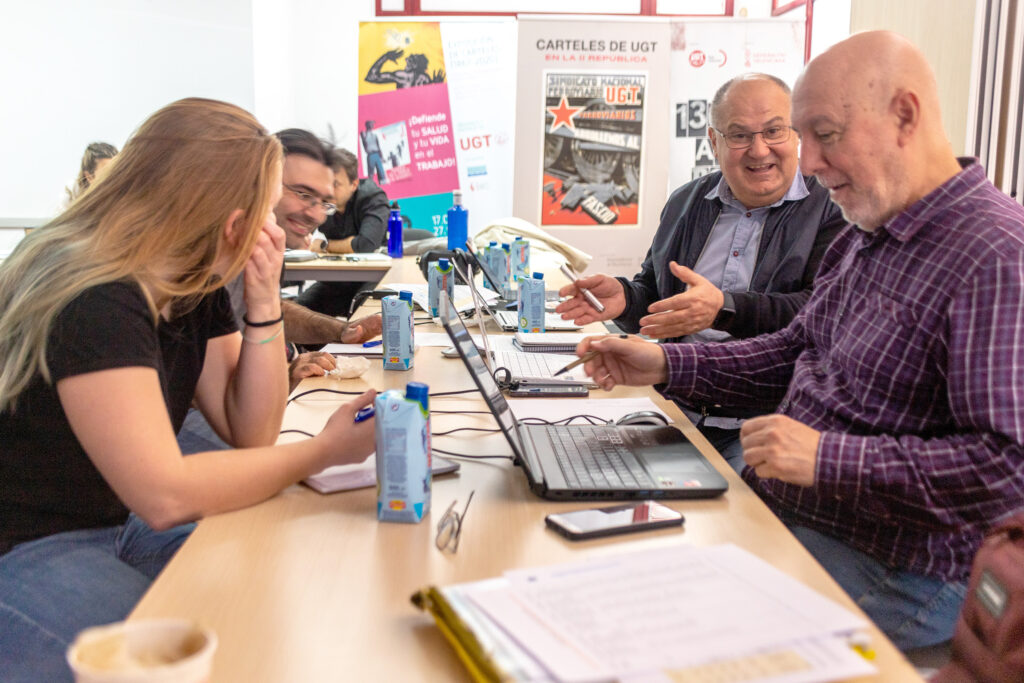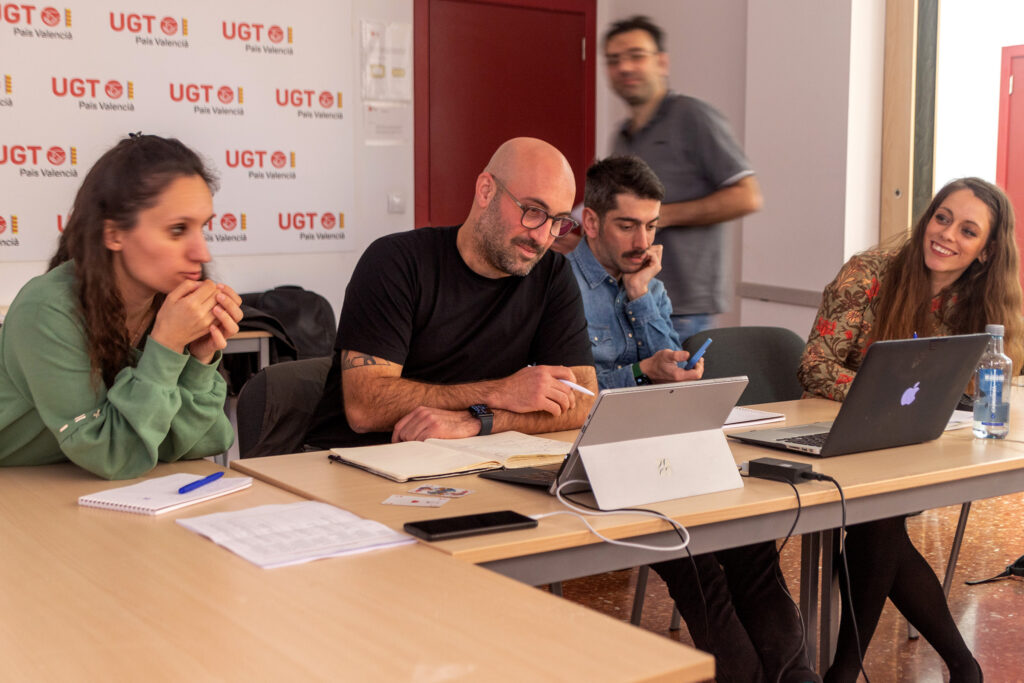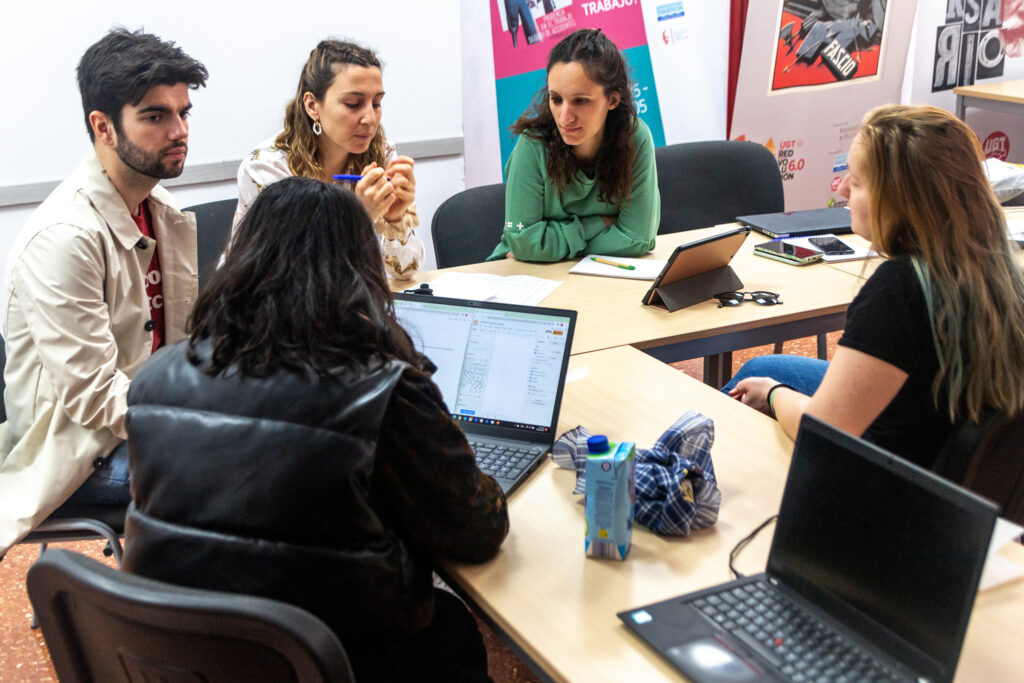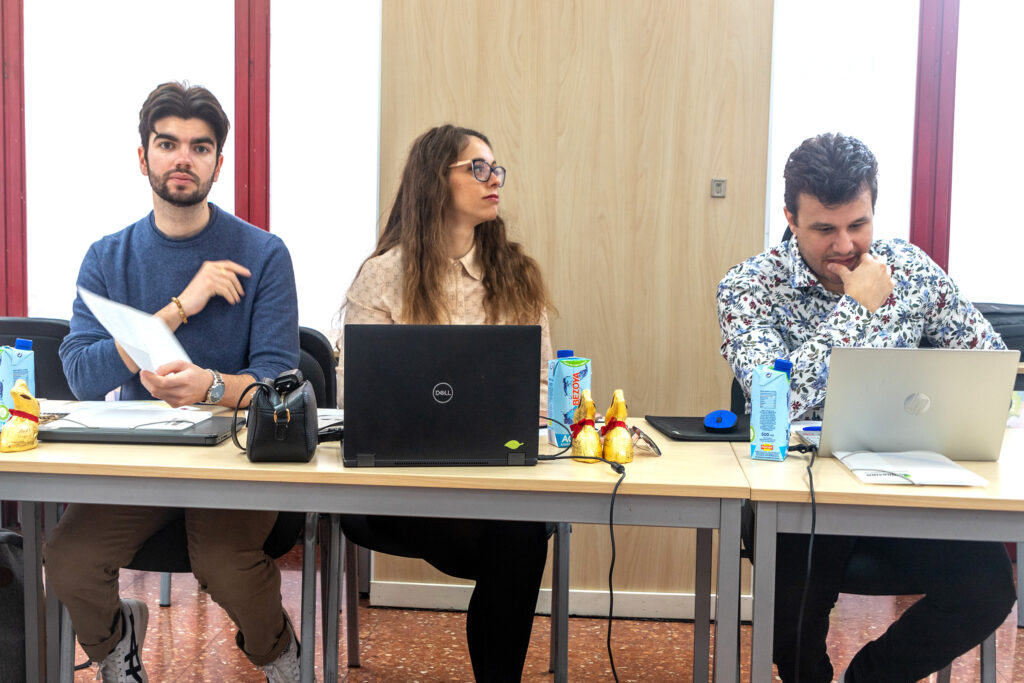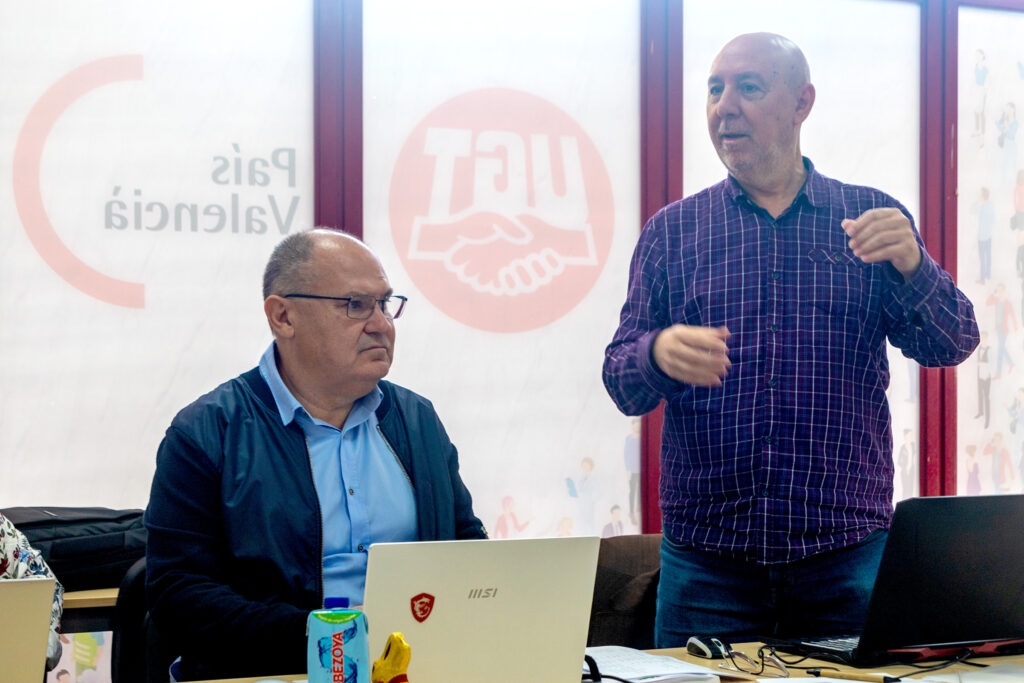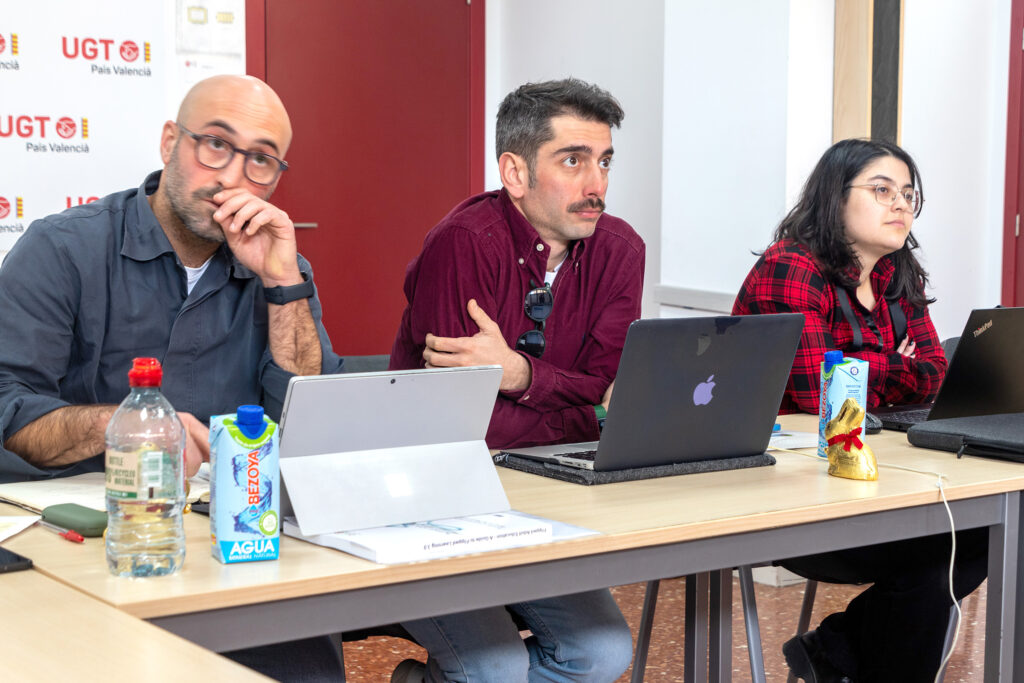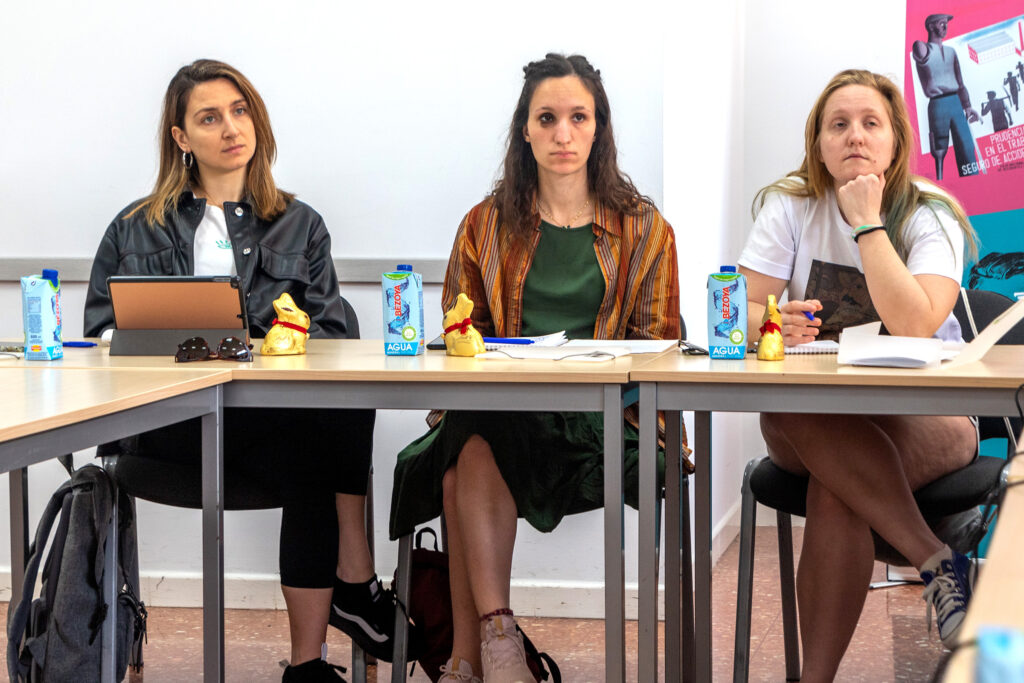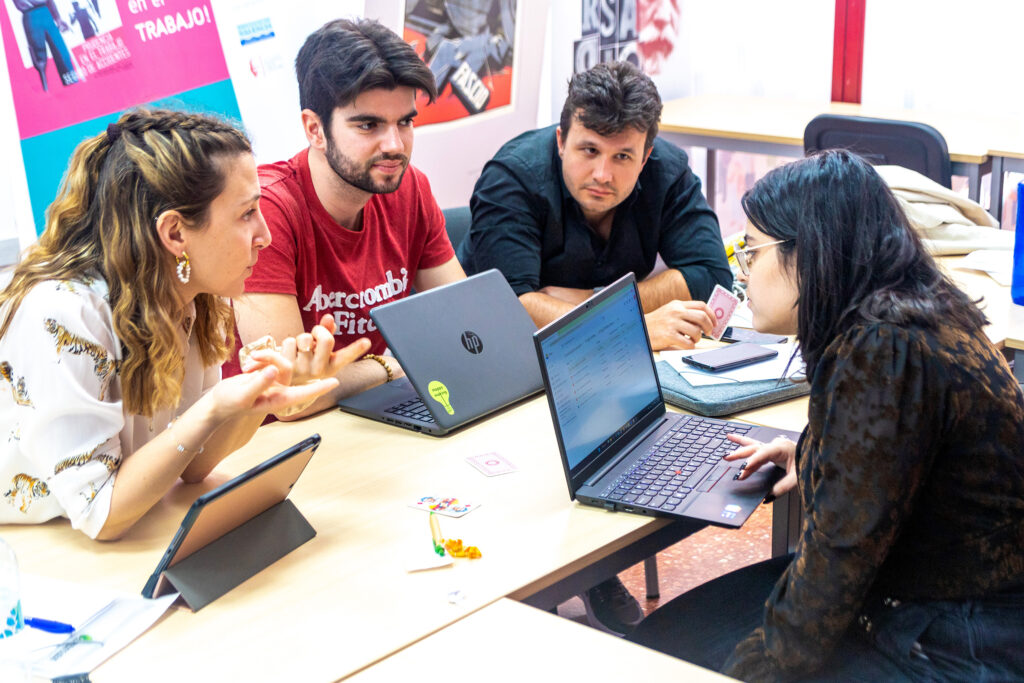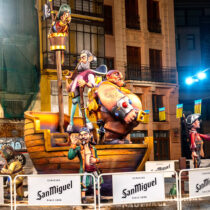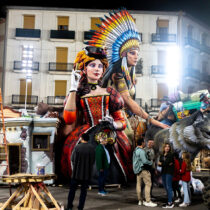The first training event in the frame of the project took place in Valencia (Spain), hosted by the Spanish Partner IFESCoop. The primary aim of this Learning-Teaching-Training (LTT) event was to facilitate the professional development of educators and trainers, enabling them to acquire new skills, knowledge, and teaching methodologies with a specific focus on Flipped Learning 3.0.
Training approach
The training itself was implemented as a Flipped Learning course: A pre-class training (with content provided and delivered by a WordPress webpage) cared for the preparation of all participants (and represented the Individual Learning Space). The Group Learning Space took place in Valencia, implemented in on-site training. This approach enabled all participants to gain their own experience in Flipped Learning Training.
- Training Framework & Backwards Design
- Hands-on Backwards Design
- Presentation (all)
- Planning Individual Space (EBI) with Hands-on Individual Space
- Connecting Individual Learning Space Group Learning Space
- Bloom’s and the two Learning Spaces
- Group Activity with Presentation and Summary
- The “Big Idea”, Creativity session with work on two “Big Ideas”
- Summary of the “Big Idea” session with a presentation
- Multimedia as an issue in the project
- Multimedia-based Formative Assessments
The training was planned, structured, and implemented by Peter Mazohl (from the EBI), who holds a Flipped Learning Master Level II.
Experience from the group work
The participants appreciated their group learning space experience. The active learning sessions served as a hub for learners to engage in active learning, collaboratively working on problem-solving and discussions, and finally expanding upon concepts introduced through pre-class materials. This approach transformed the traditional trainer-centered classroom (based on lectures) into a Learner-centered one, fostering critical thinking and promoting a more in-depth understanding of the subject. The added value of active learning lies in its ability to cultivate essential skills such as communication, teamwork, and adaptability, which are crucial for success in today’s rapidly changing world. The intensive group work (in various mixed groups) also contributed significantly to team building and the deepening of future cooperation.
Training outcomes
The results of the training were written up, expanded, and peer-reviewed, and will be available as a document timely. This document can be downloaded from the project website (https://www.digicompass.eu).
About the venue in Valencia
Valencia, the third-largest city in Spain, is a vibrant coastal metropolis known for its rich history, stunning architecture, and thriving arts scene. Nestled along the eastern shores of the Iberian Peninsula, Valencia seamlessly blends the old and the new, showcasing landmarks like the medieval Torres de Serranos alongside the futuristic City of Arts and Sciences. The city is also well-known for its mouthwatering culinary scene, particularly the traditional Spanish dish, paella, which originates from the region.
Fallas
The Valencian Fallas is an exuberant annual festival celebrated in Valencia, Spain, in honour of Saint Joseph, featuring spectacular parades, fireworks, and massive, intricately designed sculptures called “Fallas.” These elaborate “Fallas”, crafted by local artists, satirize various aspects of society and are ultimately set ablaze on the final night of the festivities, symbolizing the renewal and cleansing of the city.
 The European Commission support for the production of this publication does not constitute an endorsement of the contents which reflects the views only of the authors, and the Commission cannot be held responsible for any use which may be made of the information contained therein.
The European Commission support for the production of this publication does not constitute an endorsement of the contents which reflects the views only of the authors, and the Commission cannot be held responsible for any use which may be made of the information contained therein.